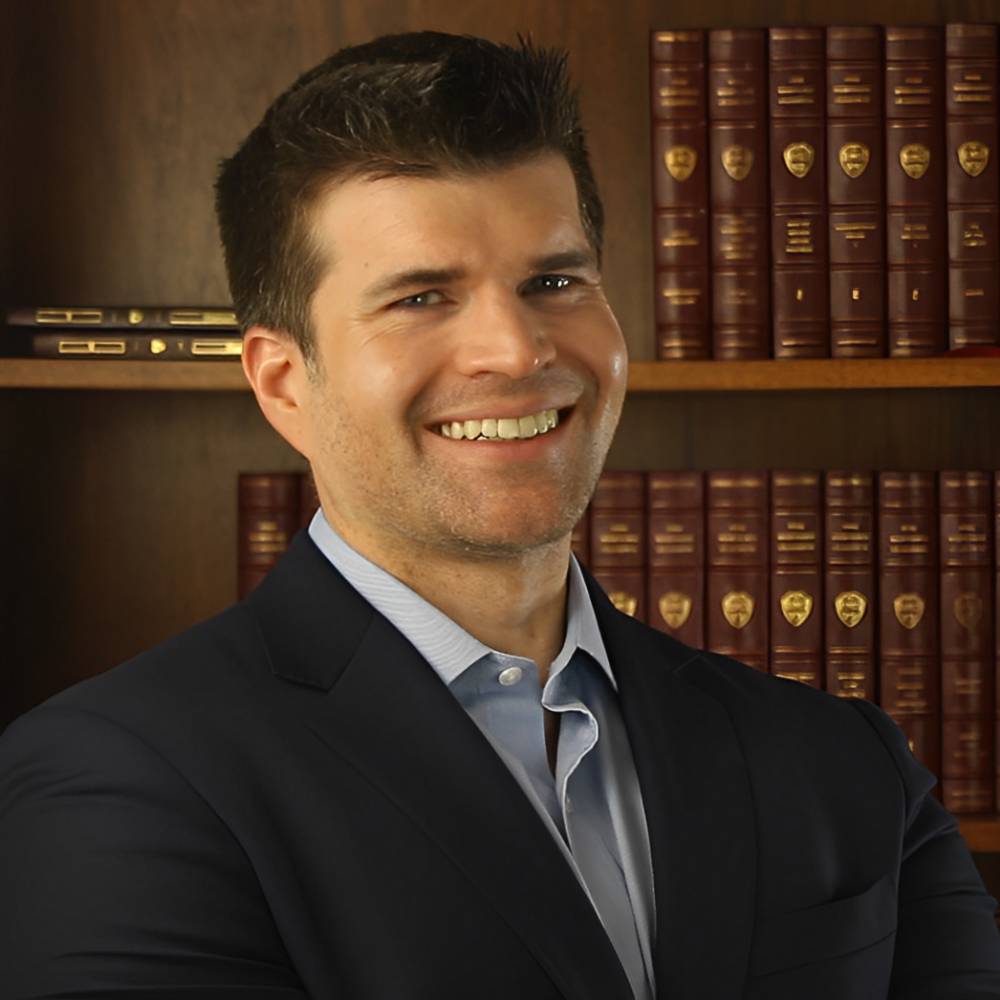Along with many Americans stuck in quarantine over the past weeks, I decided to distract myself from the COVID-19 crisis to gawk unabashedly at the train wreck of a show that is Netflix’s Tiger King.
Like a gift from the entertainment gods, Tiger King came at a time when Americans cooped up in their homes needed it most. It provides a stranger-than-fiction tale of a gun-toting, gay, polygamist, mullet-sporting private zookeeper and a murder-for-hire plot—all taking place in the sordid world of the private tiger trade that most Americans didn’t even know existed. Toss in a quasi-Buddhist sex cult leader and an incredibly dislikable Floridian (who may have fed her ex-husband to tigers) and you’ve got yourself a sideshow ridiculous enough to take people’s minds off a global pandemic for a few moments.
When any story gets big enough, it is bound to touch on legal themes that have real-world implications. Tiger King is no different, and there are plenty of legal lessons to be gleaned from the show—whether it is the importance of making more than one copy of your will, or the distinction between polygamy and polyamory.
And of course, because Joe Exotic is now serving a 22-year prison sentence, the show raises criminal justice issues, too. Ironically, for a show that premises itself on a narrative arch centered on a murder plot, it doesn’t deal with these criminal justice issues as explicitly as other true crime shows have done. So I thought it would be interesting to delve into a few of these topics.
Unsavory Characters: Government Witnesses and Testimonial Immunity
One common aspect of criminal investigations that Tiger King highlights is the unsavory cast of characters arranged to testify against him. Jeff Lowe provided information to the prosecutor, while Allen Glover and James Garretson both testified to the murder plot.
During the government’s cross-examination of Joe Exotic, the prosecutor made the point that for the jury to believe Joe Exotic’s testimony, they would have to believe that the witnesses against him were lying:
Maxfield-Green: OK. And Allen Glover’s lying about pretty much everything?
Joe: He’s protecting his boss.
Maxfield-Green: OK. And James Garretson’s lying about pretty much everything?
Joe: About—all I heard him testify was to the recordings that we heard.
…
Joe: And Carole Baskin was lying.
Maxfield-Green: OK. Thank you. But you’re telling the truth, correct?
Joe: Yeah. The – the –
Mafield-Green: That’s my question, Mr. Passage. You’re telling the truth?
Joe: Yes, ma’am.
Maxfield-Green: No further questions, Your Honor.
This is an effective trial strategy, but it raises the question—could all those witnesses be lying? I’m not saying whether they were or not, but it certainly seems clear that they had a motive to do so, making it entirely possible that they were.
Glover was an ex-con who admittedly took money for a supposed murder-for-hire plot, Lowe was complicit in the plot according to Glover’s own testimony—this made them both prosecutable under a conspiracy charge. And Garretson had legal issues of his own that the government was able to lean on to gain his testimony. Clearly, they had a motive to save their own skins.
Providing immunity from prosecution is, however, a standard government practice. Often this is necessary to secure convictions because defendants who find themselves in the middle of federal investigation tend to hang out with unsavory characters who have evidence against them. The question that the Tiger King raises is the extent that this type of testimony has an inherently coercive element to it. What unsavory character, to save his own hide, wouldn’t testify against the government’s target when the prosecutor threatens them with criminal charges if they refuse?
Some have assailed these types of agreements as violating federal bribery statutes and rules of professional conduct. However, in the end, the federal prosecutors are generally permitted to give a wide variety of benefits to witnesses with their own criminal problems as a benefit to testify against the target of the government’s investigation.
The Tiger King suggests immunity agreements can lead to a miscarriage of justice. While Joe Exotic was certainly guilty of crimes—we all witnessed him commit multiple instances of misconduct involving weapons—is it truly beyond a reasonable doubt to think that Allen Glover, Garretson, and Jeff Lowe set him up?
Mullets & Meth: The Role of Social Class in Criminal Justice
Another implicit themes of the Tiger King is the way that social status, class, and money can play out in America’s legal system. Joe Exotic comes off as a low-brow, meth smoking redneck, crass, unguarded, and too quick to speak off-the-cuff (which might have led to his ultimate undoing). He mixes with the wrong type of crowd—felons, misfits, and the overall underclass of society. And his private zoo is a low-budget operation.
Compare this to Carole Baskin. Her organization, Big Cat Rescue, presents itself as a non-profit (although according to IRS filings, she appears to pull in a salary of over $170,000 from the organization). She presents a message of opposition to private zoos and gets on the good side of PETA. Yet, her tigers appear to be kept in cages just as small as Joe’s.
Regardless of how these people appear in the show, or what feelings they might elicit in people who’ve watched Tiger King (see music video below for an old-style country music tribute), one of these two has a distinct edge in the legal system.
Psychologists have long studied the persuasive effect of appearance. And I have previously discussed how physical appearance in the courtroom can give a defendant an edge in trial. Among other things, studies have shown that making yourself appear to be of a higher social status—by dressing sharply, being well-groomed, and removing body piercings—makes you look more trustworthy.

While viewers of Tiger King recognize that Joe Exotic has an undeniable charisma in his own way, the jurors at his trial spent most of their time looking at him as part of the underclass.
Even if his lawyers had to good sense to have Joe remove his eyebrow ring during his testimony, as courtroom sketches suggest, the jury still saw reams of video footage showing Joe in all his redneck glory and could paint a clear picture in their minds that this man personified a low-class stereotype.
The prejudicial impact of Joe’s persona would have made the jury more likely to disbelief his testimony and make it appear plausible that he would be “the type” that would be involved in a murder for hire plot.
Dead Tigers: Prejudicial Impact of Government Charging Decisions
The government also has powerful legal weapons in its arsenal to coerce the defendant into accepting a plea deal. While I could not find in my research evidence of a plea deal offered to Joe Exotic, it is almost certain the prosecution offered him one.
Plea agreements usually provide a lighter sentence to the defendant than he would otherwise receive if he went to trial and lost. And even if a person has good defenses and may wish to try his luck presenting them at trial, often the potential of losing is too great a risk to take making a plea deal is the safest choice. This is sometimes known as the “trial tax.” My former criminal law professor, Alan Dershowitz, has long argued that this is a penalty that infringes on a defendant’s Sixth Amendment right to trial by jury. However, as a practical matter, it has long been upheld by courts as a constitutional prosecutorial tactic.
We see a similar prosecutorial tactic in the Tiger King, when the prosecution obtains a supervening indictment against Joe that adds numerous animal cruelty charges. Joe Exotic points out that he was later charged by the government to punish him for exercising his right to trial, and this may not be far from the truth.
In addition to being able to increase Joe Exotic’s sentence, the inclusion of these counts would have a strongly prejudicial effect against Joe that could cross over into the murder-for-hire charges. Animal cruelty charges would paint Joe as a despicable character to the jury. And if the government did not bring these charges, they would not be able to talk about any animal abuse that occurred at his private zoo because it would be “irrelevant” and “unfairly prejudicial” (two common objections to the admissibility of evidence in a criminal case). However, by including these charges in the indictment, they become relevant to the new animal cruelty counts, and the jury could hear about how Joe killed his tigers.
The jury is instructed to consider each count separately and not let a decision on a separate count influence their conclusions as to another count; but that instruction is asking human beings to do something that is against their nature. The halo effect is a well-known psychological phenomenon, and if the jury thinks a defendant is guilty of one crime, they are more likely to think he is guilty of another as well, no matter how much we might instruct them otherwise.
* * *
Was Joe’s trial a miscarriage of justice? I don’t pretend to have the answers. But hopefully, I gave you some food for thought—and you don’t even have to put sardine oil on it.


